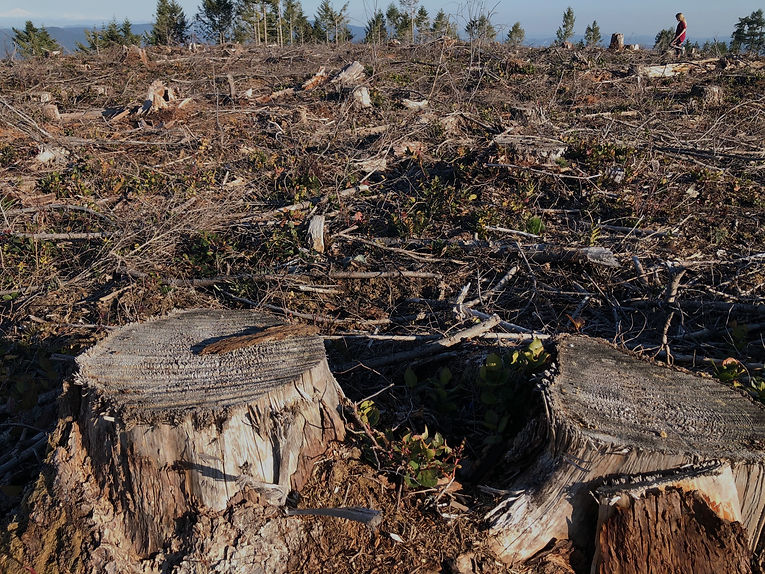
Logging creates few jobs, leaves unsightly legacy in Municipal Forest Reserve
Logging in the 5,000-hectare Municipal Forest Reserve created as few as 10 full-time jobs — two of those municipal staffers — last year, according to North Cowichan estimates provided to sixmountains.ca.
And the two companies hired to do the logging— Millstone Contracting Ltd. of Nanaimo and Integrated Operations Group of Campbell River — are based outside of North Cowichan.
While the benefits of logging in the forest reserve — also known as Six Mountains — are small and short-term, the impacts are significant and long lasting.
They extend to ugly visual scars that residents and tourists must endure for decades and a perpetual cycle of harvesting that precludes future generations from ever experiencing an old-growth forest and all its biodiversity in our municipality.
And yet the myth of forestry and jobs persists in the Six Mountains.
As recently as the North Cowichan council meeting of April 15, councillor Tek Manhas proposed a motion — thankfully, defeated by the rest of council — that logging resume in the forest reserve in 2020 at 2019 levels despite the fact that a public consultation process on the logging issue has barely begun.
Council earlier put a hold on new logging pending the consultation process.
Manhas, who comes from a forestry family, argued logging is an essential service and that a resumption of logging would “create jobs” and represent a “benefit for everybody.”
Truth is, there are few direct forestry jobs in the Municipal Forest Reserve. And much of the wood cut from the forest reserve is exported as raw logs — a tragedy of its own.
North Cowichan’s municipal forester, Shaun Mason, said a rough estimate is that the equivalent of 10 to 12 full-time forestry jobs are generated directly by logging in the Municipal Forest Reserve.
What’s a rough equivalent, one Tim Hortons outlet?
The forestry estimate includes timber cutting, road building, road maintenance, silviculture and municipal staff — Mason and a forestry technician — but not “spin-off jobs and/or dollars spent for mechanics and fuel/oil purchases etc,” he said.
Mason doesn’t have the figures, but suspects at least 50 per cent of the workers in the forest reserve are local despite the fact that the companies hired to do the work are based outside North Cowichan.
One could debate the employment estimates.
For example, in 2017 — when the municipality kept more detailed stats on direct employment in the forest reserve — just 8.44 full-time jobs were created, and 2.76 of those involved municipal employees (two full-time staff, 40 per cent of a secretary’s time, and a summer student). Close to half the normal volume of wood was cut that year.
The bottom line is that the number of workers is low and cannot justify continued logging in the Municipal Forest Reserve.
Also appreciate that those fighting for a new future for the Six Mountains — myself, included — are not opposed to logging. Far from it. My father worked for a time in the forest industry, as did my older brother. So did I.
We need logging. Just know that the case against logging in the Municipal Forest Reserve — a postage stamp in the clearcut landscape of Vancouver Island — grows by the day.
— Larry Pynn, Apri 20, 2020